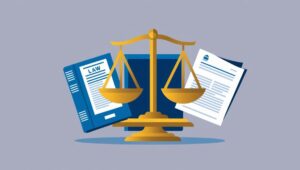Probate appraisal is an important procedure that takes place after the death of a human being. It entails determining the value of the deceased’s property for the sake of the law. However, probate appraisal in Canada is not devoid of challenges that an appraiser has to consider while conducting an appraisal to be fair and accurate. The purpose of this article is to explain probable difficulties that may appear in the process of probate appraiser and to indicate how these difficulties may be solved properly.
Understanding the Probate Process
Let us discuss some general information about the probate process in Canada before proceeding to the difficulties involved. Affirmation of a will and the management of the estate of a deceased person are done in the probate. An appraiser ascertains the value of the estates and aims to place a monetary value on the possessions of the estate to put them where they are legally required. Incorporating the valued object’s financial and non-financial properties should be fair and exhaustive.
Challenges in Probate Appraisal
- Diverse Asset Types
Challenge:
Another concern in determining values for the estate is that the assets involved in probate are quite varied. Real property and personal property, as well as investments, jewellery, artworks, and other similar items, can be included in estates. The assets entail different forms of evaluation and professional skills.
Solution:
To this effect, appraisers should endeavour to gain specialization in various forms of assets. It may be valuable to involve other specialists or obtain advice from consultants with certain experience in particular types of assets. The current advanced training in various appraisal fields can also complement the appraisal ability to deal with multiple types of assets.
- Emotional and Familial Dynamics
Challenge:
One of the major difficulties in appraisal can be the concerns with grief presented by the client’s families. Families are emotionally charged and acutely sensitive, which may trigger heightened conflict passion during the appraisal. Regarding sentimental assets, the parties may have different opinions, leading to disagreements and affecting the probate.
Solution:
The appraiser should handle all these situations with professionalism. Clear communication is key. It is good to make a positive introduction to the appraisal process by establishing expectations and goals, describing what will happen when the appraisal is conducted and having concern for the appraisee. It is also common to solve impending conflicts by seeking the services of mediators to ensure that the assessment is conducted correctly.

- Legal and Regulatory Compliance
Challenge:
Canada’s legal and regulatory environment is quite challenging to navigate. Appraisers should adhere to the state and provincial rules and regulations, federal acts, and the code of ethics. It may be much more complicated as each province has its requirement.
Solution:
It is important to be up to date with legislation developments and professional bodies’ rules and regulations. There are other ways that appraisers can get updated; they should continue with their educational process and join organizations that are supposed to inform them, such as the Appraisal Institute of Canada. Also, one may seek legal advice to avoid breaking any laws.
- Accurate Valuation of Intangible Assets
Challenge:
Business interests, intellectual property, and others of a digital nature are not easily valued properly. They are frequently nonmarket, so it is sometimes difficult to determine their worth and usually need specific approaches.
Solution:
The approach to be used by the appraisers is specific valuation approaches that specialize in intangible assets. This could be done by adopting different valuation techniques like the income, market, or cost approaches, among others. They also said that seeking assistance from business valuation or intellectual property specialists would be very helpful.
- Incomplete or Disorganized Records
Challenge:
Records of estates are often inconclusive or even confusing. This leaves room for appraisal challenges in that the actual worth of the assets is not likely to be properly determined.
Solution:
The examiners should ensure that they embark on searches to obtain all the necessary documents. This may also involve contacting some of the country’s leading banks and other finance institutions. Enumeration of belongings left in the estate and comparison with documents might retrieve some information. If some records are skewed or missing, estimations are acceptable to make by the appraisers; however, reasonable procedures should be followed in establishing those estimates.
- Rapidly Changing Market Conditions
Challenge:
The worth of the particular assets sometimes changes even within a short period due to market. This is because estimating the current market value of a specific property, stock, and even commodity for an appraisal is risky.
Solution:
Market awareness of the current market conditions should be current among the appraisers. Such techniques may include gathering up-to-date market information and seeking expert advice from market researchers to obtain up-to-date valuations.
Strategies for Overcoming Challenges
Continuous Education and Training
Continuing education is significant in equipping appraisers with updated information on the industry, updated laws, and new methods for conducting appraisals. Service-oriented professional development activities such as courses, seminars, or workshops help an appraiser improve his or her skills in handling issues in the appraisal process.
Leveraging Technology
There are specific ways through which appraisal challenges can be managed with the help of technology. Tracking assets can be done through other apps and software to enhance evaluation, analysis and generation of reports. The digital media can improve communication with clients and other stakeholders.
Building a Network of Experts
A wide network of people with different interests in particular disciplines would be useful. Ideas and solutions can be varied and whole-some when approaching real estate agents, financial advisors, law services, other appraisers, and related professionals. This might be useful when dealing with specific assets and in distinguished legal affairs.